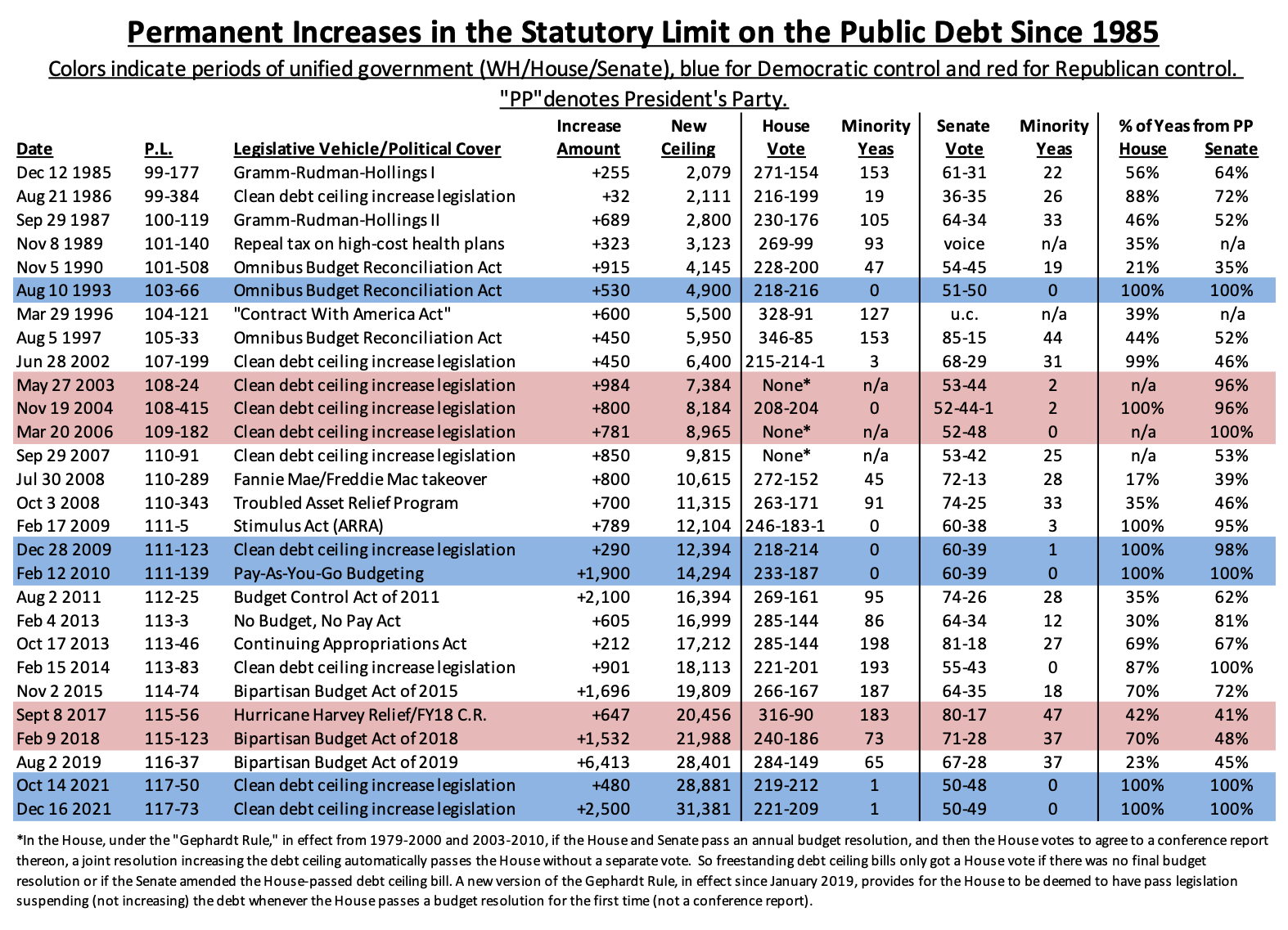The U.S. Senate will be postponing floor consideration of the multi-trillion-dollar budget reconciliation bill until January 2022 at the earliest, as the chamber struggles to finish a few things and adjourn for the year as soon as tonight or tomorrow.
Realistically, if the bill was going to get done by Christmas, it was going to be right up against the holiday – the “Byrd bath” process where both parties argue over specific provisions in front of the Senate Parliamentarian has not yet happened (except for the House-passed immigration provisions, which were disallowed yesterday), and political agreement has still not been reached within Democrats on the scope of the bill. Even for a filibuster-proof bill like reconciliation, if 50 Democrats won’t vote to bring up the bill and start debate, there can be no debate.
Yesterday, President Biden issued a statement that “My team and I are having ongoing discussions with Senator Manchin; that work will continue next week. It takes time to finalize these agreements, prepare the legislative changes, and finish all the parliamentary and procedural steps needed to enable a Senate vote. We will advance this work together over the days and weeks ahead; Leader Schumer and I are determined to see the bill successfully on the floor as early as possible.” The moment Senators read the words “weeks ahead,” some started heading to local airports to fly home for the year.
Consider: the last Senate floor vote on Wednesday the 15th saw only one absentee. The first floor vote yesterday had four absentees, and the last vote last night had ten absentees. Then, the first vote this morning saw 20 absentees, and the vote just finished had 23 no-shows. It is worth remembering that, through most of U.S. history, the end of a session of Congress was not determined by leaders, but by fewer than half of the members of a chamber showing up for a recorded vote or quorum call. (If you can prove a quorum is not present, then no more business can be conducted.)
There had been some discussion of Majority Leader Schumer forcing a Senate vote on either their big election and campaign finance reform bill or else the specific Voting Rights Act amendments before Christmas, but with a maximum of only 48 Senators willing to use the “nuclear” option to overcome a certain filibuster (and the real number is probably below 48, it’s just that only Joe Manchin (D-WV) and Kyrsten Sinema (D-AZ) are willing to talk publicly about it), that failure would only further dishearten progressives.
So all that is keeping the Senate in town is a list of 21 nominees upon which Schumer has filed cloture. To approve that many nominees via “regular order” (roll call vote on cloture with a simple majority threshold, wait two hours, then roll call vote on confirmation, followed immediately by the next cloture vote, but with 30 hours of debate on the 21st nominee because she is nominated for an appeals court) will take several days, but there are ongoing negotiations to dispense with most of the roll call votes in exchange for Schumer’s promise to vote in January on mandating sanctions on Russian individuals and entities related to the Nord Stream 2 pipeline.
(This does not cover USDOT nominees – see related article in this week’s issue).
The Senate’s 2022 schedule, released this week by the Majority Leader, calls for the Second Session of the 117th Congress to begin on January 3.
Debt limit. In related news, President Biden signed the $2.5 trillion debt limit increase (S. J. Res. 33) into law yesterday, as Public Law 117-73. The new debt limit is $31,381,462,788,891.71. That brings up an interesting fact: when I entered this number into a cell in a Microsoft Excel spreadsheet, Excel kept rounding off the penny, down to .70. Apparently Excel has a built-in limit that no number can be larger than 15 digits. The debt is officially too big for Excel to handle.
Biden’s signature followed Senate and then House passage of S. J. Res. 33 on Tuesday, December 14. The Senate vote was all 50 Democrats or caucuses-with-Democrats in favor, 49 Republicans voting no, and Cynthia Lummis (R-WY) absent due to illness. In the House, the vote was 221 to 209, with all Democrats voting “yes” along with one Republican, Adam Kinziger (R-IL), while the 209 other Republicans voted “no.”
220 out of 221 is 99.54 percent, so the percentage of “yes” votes coming from the president’s party rounds up to 100 percent in our updated table at the end of the article, which is around the historical norm for debt limit bills when the President’s party holds the House and Senate.
The signing of the debt limit bill may have allowed the Treasury Department to transfer $118 billion from the general fund of the Treasury to the Highway Trust Fund yesterday. (Per yesterday’s Daily Treasury Statement, Table III-A, $299.9 billion in nonmarketable debt was created in the Government Account Series yesterday, which is the kind of debt that Highway Trust Fund balances are invested in.)





